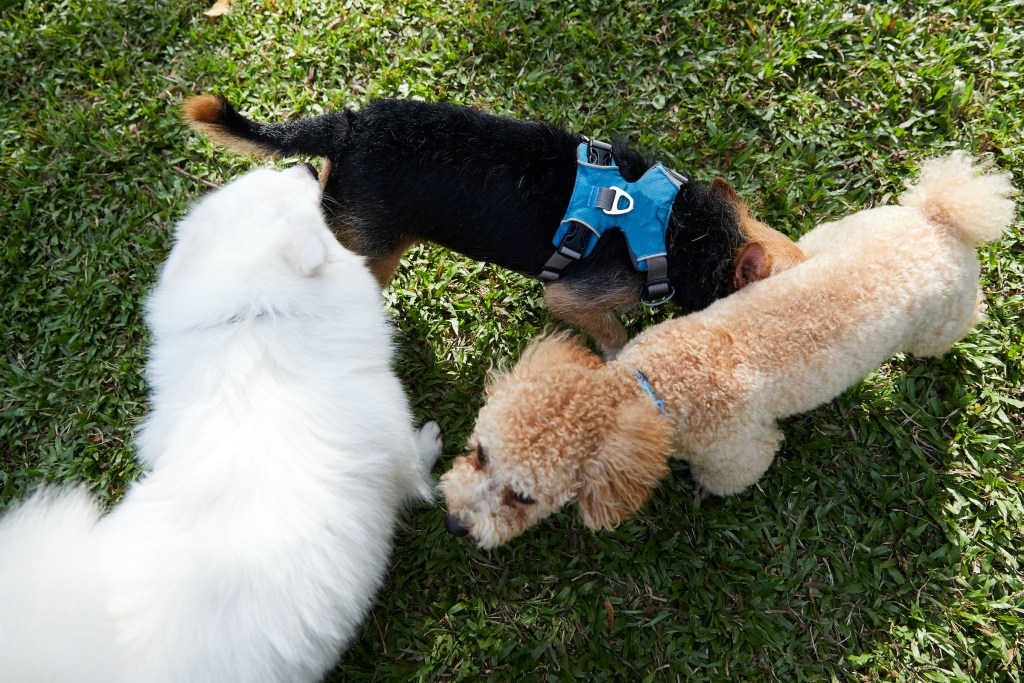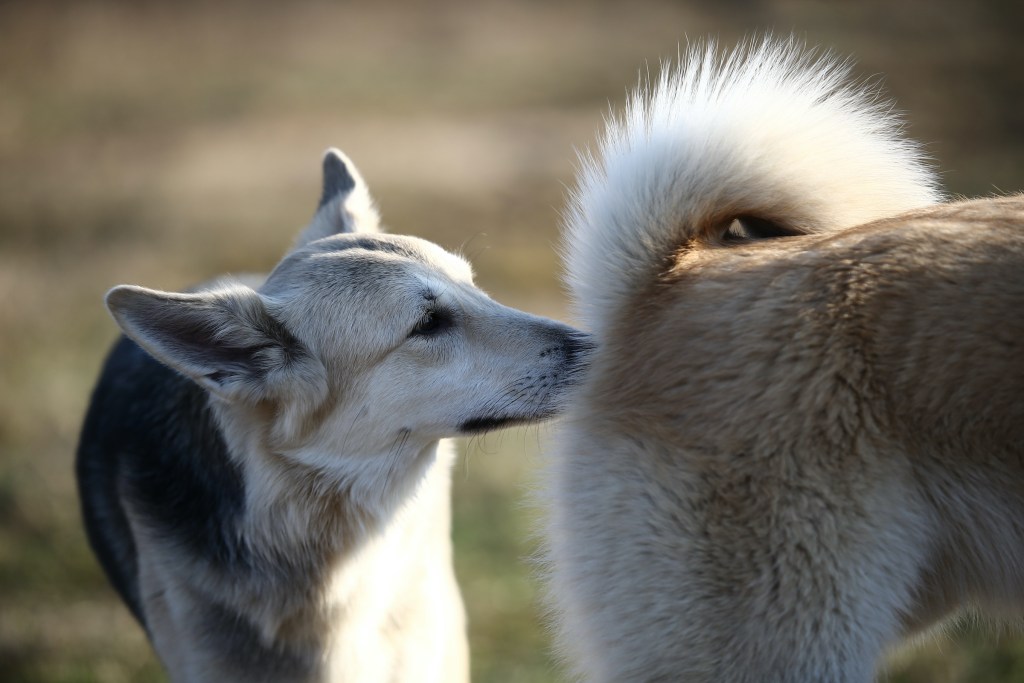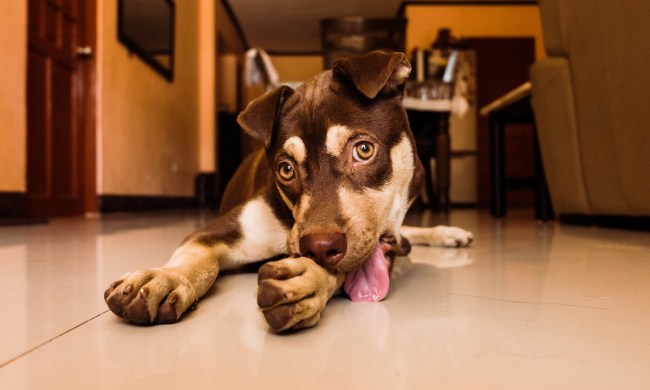People can certainly have unique ways of saying hello, but canines have us beat in this category. Butt sniffing is an odd, even comical routine of our furry friends, but there has to be more to it than dogs meeting—right?
Well, yes and no. Dogs sniff each other’s butts as a way of gathering basic, vital information about another pup, in the same way that people use their eyes. Whether this evolves to anything more than a quick hello is up to a number of factors (some of which are out of your control, we might add), but some training and bonding with your dog will ensure some innocent butt-sniffing doesn’t go too far.
So why do dogs sniff each other’s butts? Well, according to science, it’s because of a number of reasons.

Canine scent receptors
To understand how the smell of a dog’s behind can impact communication, it’s important to start with the basics. Most people, whether pet parents or not, have heard that dogs have an insanely strong sense of smell, but few folks understand just how strong.
According to the Veterinary Centers of America, a dog’s sense of smell is about 100,000 times stronger than ours. This is because human noses only contain around 5 million olfactory receptors (the cells that detect and send smell input to the brain) compared to dogs’ impressive 150 million.
In addition to an extra-strong olfactory system, notes PBS, canines have an entire second organ dedicated to smell. Jacobson’s organ, or the vomeronasal organ, is a small structure that picks up on pheromones and other undetectable chemical smells. This organ, located in the nasal cavity, plays a vital role in identifying smells from other dogs’ behinds, which can give away details like a pup’s gender, health, and openness to mating.
Why do dogs sniff each other’s butts?
When a dog sniffs a new friend’s behind, his olfactory system and Jacobson’s organ work together to gather information (AKA scents) from their friend’s anal sacs. These glands, located at both sides of the rectum, release a small amount of liquid into the anus every time a dog defecates, though the scent is constantly present, according to VCA Hospitals.
Dogs aren’t the only species to do this, either. Hills Pet notes that other mammals, like cats, also have scent glands in the anus, prompting all kinds of butt-sniffing hellos. Since humans don’t have this trait, though, we aren’t likely to get the same kind of attention.
Because every dog has his own unique scent, explains VCA Hospitals, it’s easy for canines to distinguish one individual from another, even if they’ve been apart for a long time. Canine family members will be able to recognize one another this way too. Anal gland scents are even useful when dogs are looking to mate, though their owners may not be aware of it. After all, humans can’t smell these chemical trails.
Finally, VCA Hospitals says this instinctual habit can also be soothing for dogs to do, just as it feels natural for you to introduce yourself when you meet someone new.

Should I stop my dog from sniffing other dogs’ butts?
Although butt-sniffing might seem a bit—invasive—it’s a completely normal exchange for dogs. You don’t need to worry about changing your pup’s behaviors unless other dogs act bothered by the sniffing, but even then, the dogs may be able to work it out themselves. They might sit, turn away, or even growl to discourage unwanted attention to get the message across.
Working on your pup’s obedience training is a great way to encourage good behavior around other dogs. Practice makes perfect, of course, so excitable pups won’t be calm and collected after just a couple of days. If you need to, carry around a bag of treats for on-the-go practice, a quick attention-grabber, or a reward for giving another dog their proper space. Just keep at it!
Though most butt-sniffing episodes are no cause for concern, it’s easy to see why behavior like that might grab your attention. Just think—what if people said hello like this, nose-to-behind? Meeting someone new would never be the same. Luckily, we don’t have to worry about that, so we can let our pups do what they do best: using their noses. And who knows? Maybe they’ll even meet a new friend that way!



